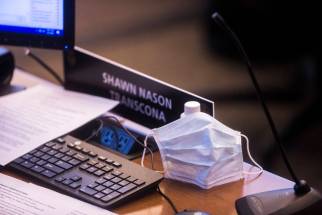Holding his breath Winnipeg man approved for double lung transplant waiting for the call that will send him to Edmonton
Read this article for free:
or
Already have an account? Log in here »
To continue reading, please subscribe:
Monthly Digital Subscription
$0 for the first 4 weeks*
- Enjoy unlimited reading on winnipegfreepress.com
- Read the E-Edition, our digital replica newspaper
- Access News Break, our award-winning app
- Play interactive puzzles
*No charge for 4 weeks then price increases to the regular rate of $19.00 plus GST every four weeks. Offer available to new and qualified returning subscribers only. Cancel any time.
Monthly Digital Subscription
$4.75/week*
- Enjoy unlimited reading on winnipegfreepress.com
- Read the E-Edition, our digital replica newspaper
- Access News Break, our award-winning app
- Play interactive puzzles
*Billed as $19 plus GST every four weeks. Cancel any time.
To continue reading, please subscribe:
Add Free Press access to your Brandon Sun subscription for only an additional
$1 for the first 4 weeks*
*Your next subscription payment will increase by $1.00 and you will be charged $16.99 plus GST for four weeks. After four weeks, your payment will increase to $23.99 plus GST every four weeks.
Read unlimited articles for free today:
or
Already have an account? Log in here »
Hey there, time traveller!
This article was published 14/06/2022 (1272 days ago), so information in it may no longer be current.
Rick Schmidt remembers the day in 2018 when he received his diagnosis of idiopathic pulmonary fibrosis.
“It was like an out-of-body experience,” said the now 66-year-old Winnipegger of that life-changing experience. “It was hard to think it was happening to me. This disease kills people.”
IPF causes scar tissue to build up in the lungs, making it hard to breathe. Drugs can slow its progress, but there is no cure. The only hope is a lung transplant.
Which is why Schmidt is nervous and hopeful at the same time; he got news last month that he meets the qualifications for a double lung transplant.
He’s been told to expect a call sometime this year telling him to head immediately to the airport for a flight to Edmonton, one of two places in Canada where that life-saving surgery is performed.
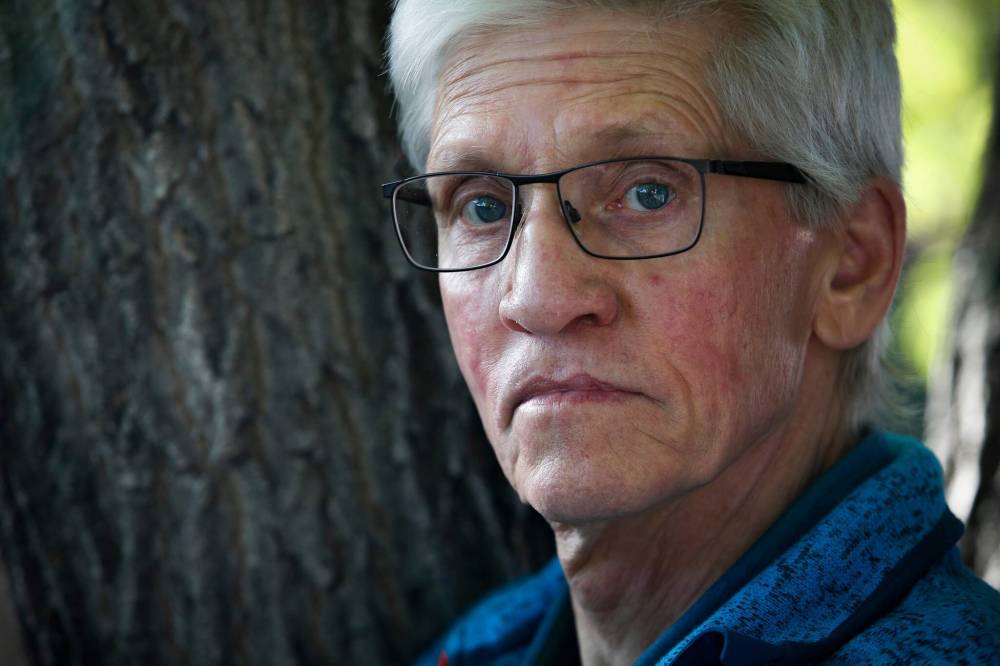
Schmidt, who is married with two children and two grandchildren, is a graduate of River East Collegiate and the University of Manitoba.
He spent 18 years in the insurance industry before switching careers in 1996 to become a mediator and conflict-resolution specialist.
“I started volunteering as a mediator in 1991 and loved it,” he said, adding he decided to quit as an insurance broker when “my day job got in the way of what I really enjoyed.”
Along with doing mediation, Schmidt teaches conflict resolution at Menno Simons College, a program of Canadian Mennonite University affiliated with the University of Winnipeg.
“In mediation, I get to see people change what they think in front of my eyes,” he said, adding while being a broker is an important job, “I never got that buzz in insurance.”
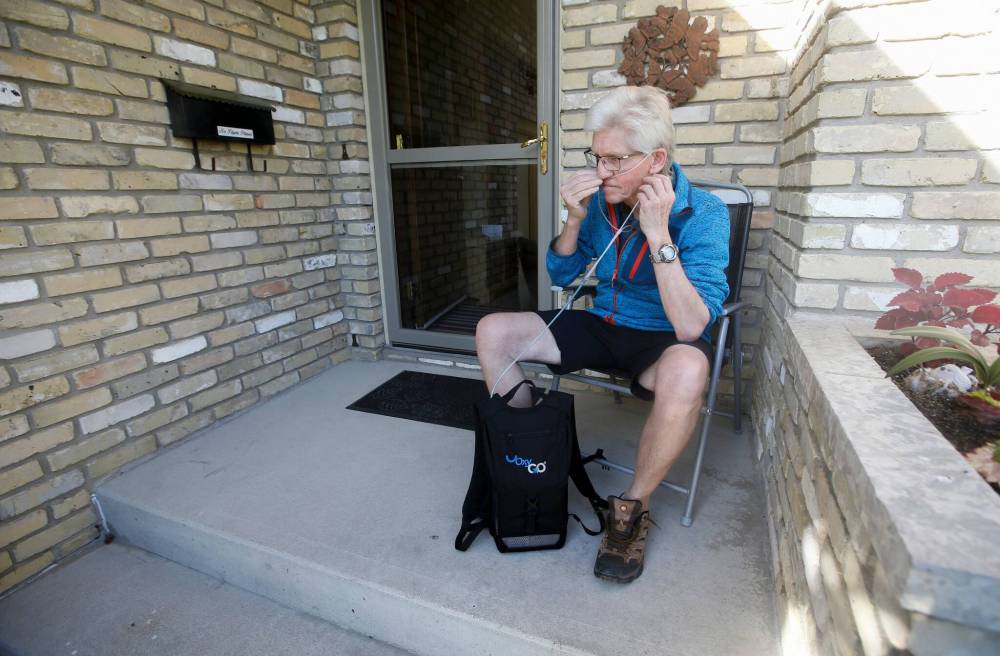
Outside of work, he maintained a healthy and active lifestyle and enjoyed hiking, biking, canoeing and cross-country skiing.
But trouble with his hips, due to osteoarthritis, led to both being replaced — one in 2013 and the other a year later.
Then in 2017 he began to experience breathing issues while exerting himself; he was diagnosed with blockages in his heart, leading to triple-bypass coronary surgery that year. Additional tests led to the IPF diagnosis a year later.
Schmidt has no idea what caused the IPF; was it working on a sod farm and breathing a lot of dust when he was younger? Was he exposed to chemicals at some point?
“I don’t know,” he said. “All I know is something in my lungs responded to something they didn’t like. And once the disease started, it doesn’t stop.”
“All I know is something in my lungs responded to something they didn’t like. And once the disease started, it doesn’t stop.” – Rick Schmidt
He was put on expensive medication — $50,000 a year — to slow its progress. By last fall it wasn’t working so well and he knew things were getting worse.
“I could feel it, I knew I was going downhill,” he said.
That’s when doctors raised the option of a double lung transplant.
Doctors in Winnipeg considered him a good candidate; he was in good shape after heart surgery, he was active and had a positive outlook. But before he got the green light, he had to prove he was ready for the ordeal ahead.
“Lung-transplant recipients have to be committed, have to show they are ready to get with the program,” Schmidt said.
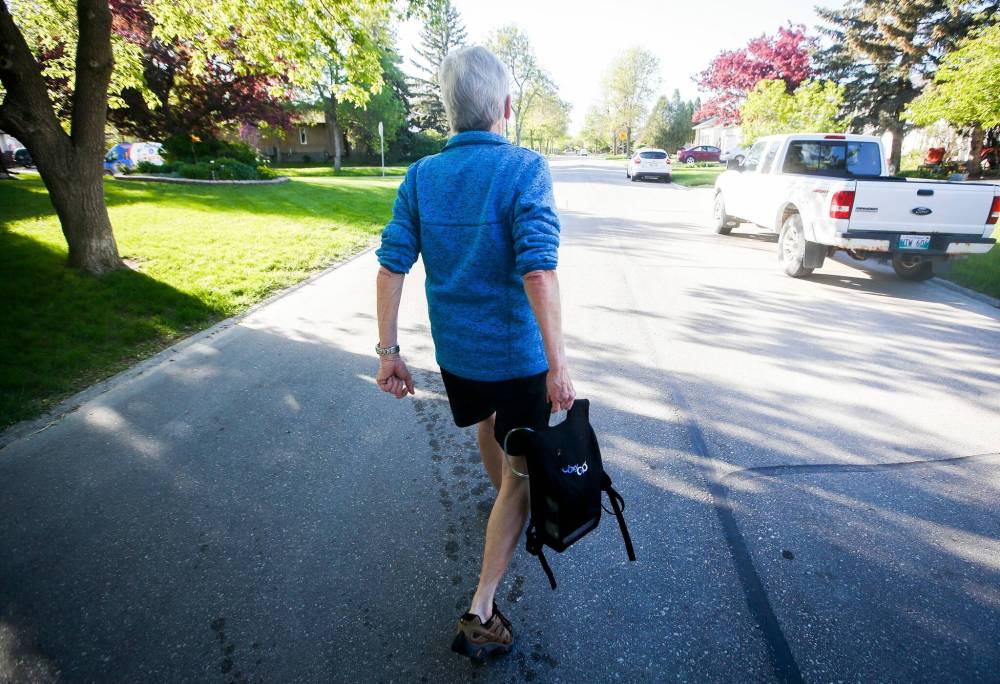
To make that determination, he was interviewed by the local transplant team to “get a sense of who I am, and my commitment to getting healthy,” he said. “They wanted to know if I was mentally prepared, and if I have good support systems, if I am up for it physically, mentally and emotionally.”
At the same time, they “made it clear I am only trading one chronic situation for another,” he added, noting there is a real possibility of rejection.
There’s also no guarantee of how many years of life he will get from the transplant. He’s been told it can be from five to 20 years. “Who knows?” he said. “I hope to make it past five, I hope to live 20 more years.”
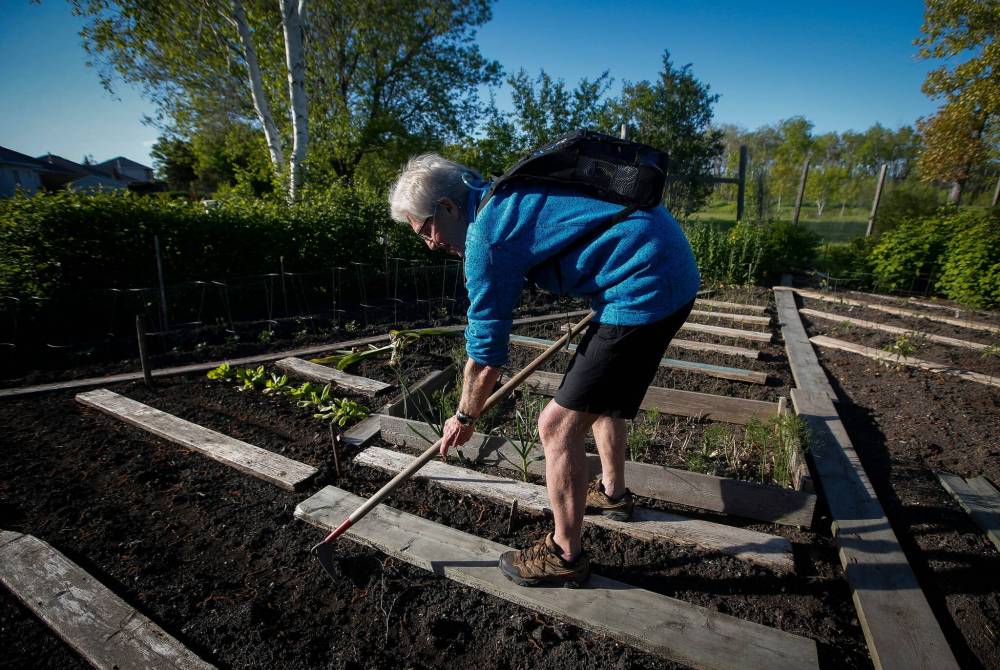
Now that he is accepted into the lung-transplant program, it’s a waiting game for Schmidt and his wife, Sara Jane; the average wait time for a new set of lungs is about nine months, but it could be sooner.
“I heard of one person who got the call the day after being accepted,” he said, adding it’s a question of the right size of lungs and the right blood type.
“There’s also the question of need,” he said. “Someone who is needier than me will go first.”
Meantime, Schmidt keeps busy with his new companion; a 2.7-kilogram portable pulse oxygen concentrator he wears on his back while doing things such as going for a walk or slowly mowing the lawn.
“It’s good for five hours before needing recharging,” he said, noting it supplies oxygen when he takes a breath.
“They wanted to know if I was mentally prepared, and if I have good support systems, if I am up for it physically, mentally and emotionally.” – Rick Schmidt
He cancelled his fall and winter classes at Menno Simons College, something he hated to do, as it was going to be his first time back in the classroom offering in-person instruction since the beginning of the pandemic.
“It wouldn’t be fair to the students if I had to pull out suddenly when a call came,” he said.
He also has time to think about his condition, and what it means.
“I’m a person of Christian faith, and I believe in a caring God,” said the member of River East Church, a Mennonite Brethren congregation. “But I don’t blame God for this.”
He also doesn’t spend time asking, “why me?”

“Why not me?” he said, adding he has never believed life has to be fair. “There are bad people who live long lives, good people whose lives are short.”
The bigger question for Schmidt is what he will do with the additional years of life. “That’s the important thing for me right now,” he said.
The situation has made him conscious of death.
“I have become more aware of my mortality due to my disease, that my days are numbered,” he said, adding, “on balance, it’s not a bad thing to know. It’s something that can be helpful to keep in mind as I think about how to live my best life.”
For Sara Jane, 64, the prospect of a transplant is good news.
“We’ve been living with this for a long time,” she said. “It’s mostly in the background, but it’s more obvious if he has a coughing spell or is especially tired.”
It also means planning; when Rick gets to Edmonton, he doesn’t need to worry about what to wear — it’s straight into a hospital gown.
“I’m hopeful about the transplant. I hope we can get more quality time together to do the things we enjoy.” – Sara Jane
But Sara Jane, however, has to plan for the weather. A “go” bag right now will contain summer clothes. If the call doesn’t come until September, she needs to pack fall clothing; if it’s winter, warmer pieces.
She also needs to find a place to stay, somewhere she can show up at a moment’s notice.
“I’m hopeful about the transplant,” she said. “I hope we can get more quality time together to do the things we enjoy.”
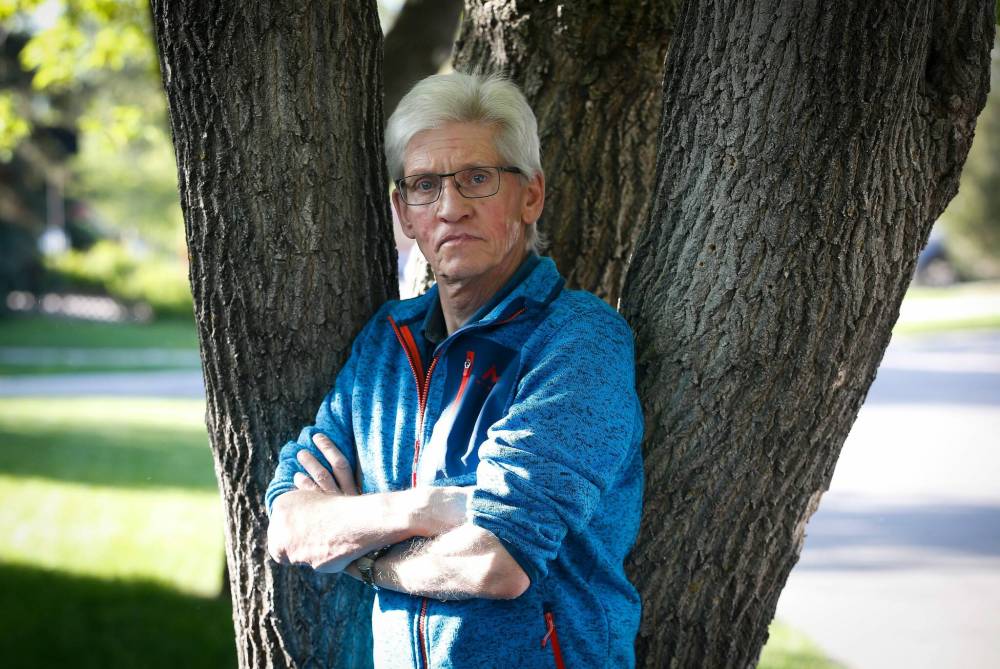
Now that he’s accepted into the transplant program, the next step for Schmidt is being introduced to the Edmonton transplant team. That’s expected to happen sometime this month.
He’s never to be more than two hours from home in case lungs suddenly become available.
When the call comes, the couple needs to head immediately to the airport where a private jet will take them to Edmonton. Then it’s into the operating room for a six- to 12-hour surgery — less time if it goes well, longer if it doesn’t.
“Hip-replacement and bypass surgery were a piece of cake compared to what’s coming,” he said, noting he will be in intensive care for two weeks after the operation.
After that, he’ll be flown back to Winnipeg for additional observation at Health Sciences Centre before being sent home for two to three months of recovery — if all goes well.
“I’m quite at peace about it, whatever happens.” – Rick Schmidt
“I’m quite at peace about it, whatever happens,” Schmidt said, adding he has deep faith in the transplant team.
“There are things about our medical system that disappoint me, but not the people in it,” he said. “They are great people, they do great work and they really care.”
He also realizes what’s a blessing for him — new lungs — is bad news for the donor. “I think about that a lot,” he said quietly.
Whenever the call comes, he will be ready. Until then, he’s going to enjoy his yard, stay as active as possible, and prepare for “whatever is next.”

John Longhurst has been writing for Winnipeg's faith pages since 2003. He also writes for Religion News Service in the U.S., and blogs about the media, marketing and communications at Making the News.
Our newsroom depends on a growing audience of readers to power our journalism. If you are not a paid reader, please consider becoming a subscriber.
Our newsroom depends on its audience of readers to power our journalism. Thank you for your support.




